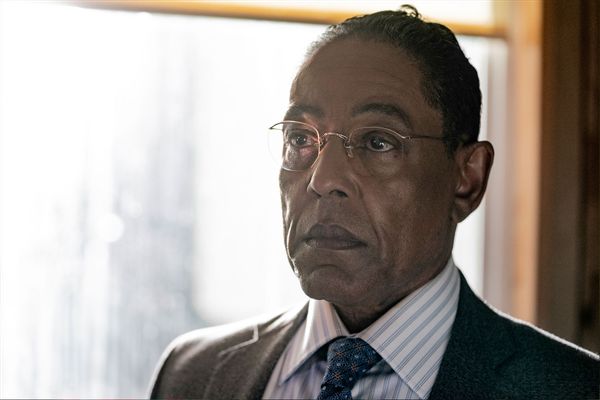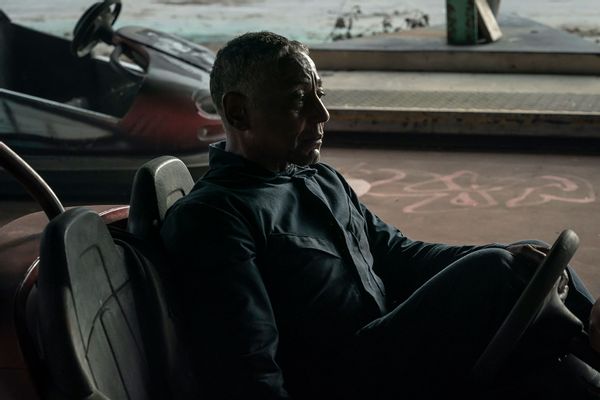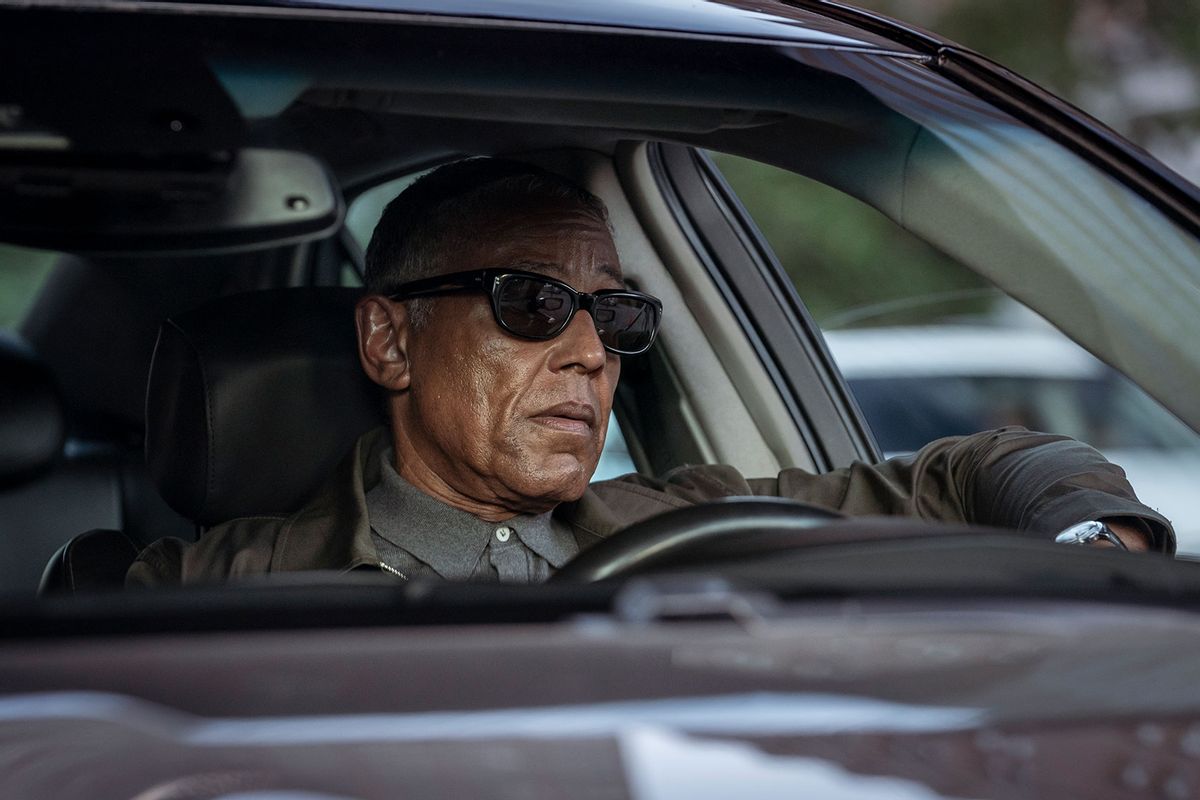Giancarlo Esposito has a different energy about him these days. The shift may be subtle enough to evade someone sitting down to “Parish,” the new AMC drama in which he plays the title role and serves as executive producer. But chatting with him in person reveals a lightness that hasn’t always been there, especially over the decade when all anyone wanted to rave about was his portrayal of Gustavo Fring.
I pointed that out to him in February, with no expectation that he'd remember the last time we spoke, a few weeks before the pandemic lockdowns began in 2020. Esposito talks to a lot of journalists and interacts with exponentially more fans. To him, I am merely a drop in humanity’s ocean. Nevertheless, he confirmed what I was sensing.
“I think that I'm a little over myself, you know?” he said with a shrug. “I do what I do because I love it. And I love the effect it has on people. But I’m the sum of a journey. Every role that I've ever played has led me to the role I'm playing now.”
That’s a blessing and a curse — my words, not his. Esposito’s screen career stretches back to 1979, a full decade before his scene-chewing performance in Spike Lee's landmark 1989 film “Do the Right Thing.”
 Giancarlo Esposito in "Better Call Saul" (AMC)
Giancarlo Esposito in "Better Call Saul" (AMC)
Much of his recent filmography was defined by his roles in “Breaking Bad” and “Better Call Saul” — and by playing Gus. You can’t watch his work in “The Gentlemen” or his glower and stalking throughout “The Mandalorian” without being reminded of his performance as the unforgettable narcotics distributor and imposing proprietor of Los Hermanos Pollos.
Flecks of Fring are discernible in Gracián Parish, a New Orleans driver whose loved ones call him Gray. Esposito’s title character slips back into that city’s criminal underworld when he can’t pay his bills, a plot motivator that initially invited comparisons between Parish and Walter White.
Each starts as a good man whose morals harden and contort under pressure. Each is a father who has fallen on hard times and is desperate to prevent his family from tumbling into economic ruin. Gray agrees to serve as a wheelman for a criminal syndicate — this time, it's a Zimbabwean family known as the Tongais — but only for as long as it takes to get his close friend and his business out of trouble.
"Every role that I've ever played has led me to the role I'm playing now.”
“Parish” is an American adaptation of the British action drama called “The Driver” and was nearly eight years in the making — “a long cultivation,” as Esposito describes it, with interruptions he couldn’t have predicted. One of them gripped the planet shortly after we last spoke in 2020.
Esposito considers the COVID-19 pandemic as a “great equalizer”: “No matter how rich you are, there's no escape. Right? It depends on how healthy you are inside,” he said.
For him, the health check was primarily psychological. He retreated to a home he had bought while still mostly on the road and working. Once that all ground to a halt, he took stock of where and who he was: a divorced father of four, supporting two households and paying for five cars.
He called his accountant. How long can I last? he asked. About a year, he was told, placing him in a better spot than most. Panic set in anyway.
We need your help to stay independent
“You think of a lot of things in those desperate moments to try to keep your head above water and that of your family,” Esposito said. “And then you know, you think about reprehensible things that you might do… I remember thinking, ‘If I just got someone to bump me off…’ I was insured for a lot of money, and my family would be able to survive.”
“And that's a horrible thing,” he concluded. “But that's that survivor kind of thought, that I’ve got to do something and I don't know what to do.”
Then he got over himself.
 Giancarlo Esposito in "Parish" (AMC)
Giancarlo Esposito in "Parish" (AMC)
He thought about all the people who didn't have a year. “What about the person who is good until next week? Or good for three days? And what about the Everyman and Everywoman who doesn't have the means to survive, who can never take a day off of work and can't get sick, because their family depends on them?” he wondered.
“That's what started me to think about ‘Parish’ and ‘The Driver,’ and helped me make it something that that American audiences could get their heads wrapped around,” Esposito continued. “And it's been very, very connected for me. Because a part of my life, and the circumstances of my life, have some similarities to Gracián Parish.”
In other ways, however, he and his character are highly dissimilar. As top-billed executive producer on “Parish,” Esposito has power over how the story is shaped and told, cashing in part of the currency mountain he’s acquired over a 45-year career in film and TV.
These days, he says, he can go to network and point out the lack of Blackness in their shows, and throw in that the content he champions can serve as a corrective. That mindset informs the New Orleans setting of "Parish," offering a means of examining that city’s international and intermixed culture, as well as the racism permeating its political and social fabrics.
Want a daily wrap-up of all the news and commentary Salon has to offer? Subscribe to our morning newsletter, Crash Course.
Esposito also wanted to tell a story of immigrant entrepreneurial success through an affluent family from an African country, a type rarely seen on TV. He makes clear that the Tongais can't exactly be seen as an aspirational success story: They built their wealth and influence on human trafficking.
“My journey as a creator is to be present in what I'm actually involved in at the moment."
“Now, Gray has no clue about what they do. What he sees is they are successful, and he is not,” Esposito explained. “I really wanted to play with the idea that many of us who were born to soar are unable to make ends meet. And then we have people who come from countries and they’re able to make it happen. They have abundance. What does that say about us as Americans? That is an investigation I wanted to play with in Gray’s story.”
Long known for his prolific output, Esposito says he’s also working on a graphic novel along with prepping to co-star with Uzo Aduba in “The Residence,” a Netflix drama produced by Shonda Rhimes’ Shondaland. There's also an action movie project. It’s a to-do list that would be impressive for anybody.
Esposito thinks of it in another way. “My journey as a creator is to be present in what I'm actually involved in at the moment. That’s what gets all of my attention,” he said. “It's nice to look back and appreciate some of the characters I've played, and to study them and go, ‘Oh, wow, I made a huge impression with that.’”
Then he pondered some work he did recently with Chris “Lethal Shooter” Matthews, a private skills coach who works with players in the NBA and the WNBA.
To keep looking back in the rearview mirror at his biggest roles is almost like “celebrating the shot,” he says, which is fine in that glorious moment. “But the point is to not celebrate the shot, but to make the shot, and then move on to the next shot, and not be attached to the outcome.”
“The journey of that is what improves me. It’s what inspires me.”
New episodes of "Parish" air at 9 p.m. Sundays on AMC.
Read more
about this topic



Shares